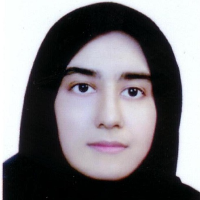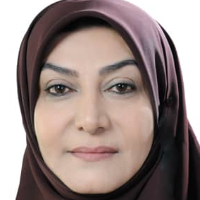Psychometric properties of Lecavalier Behavioral Inflexibility Scale in autistic children
The aim of this study was to investigate the psychometric properties of Lecavalier Behavioral Inflexibility Scale in autistic children. Research method was descriptive survey of instrument standardization type. The statistical population consisted of 1400 autistic children aged 3 to 12 years in Isfahan, from among whom 450 children were randomly selected and 430 of them were included in statistical analysis according to inclusion and exit criteria of the study. In exploratory factor analysis, 230 individuals and confirmatory factor analysis 200 autistic children aged 3 to 12 years were included separately. Research instruments were GARS Autism Symptoms Diagnostic Scale and Lecavalier Behavioral inflexibility Scale. Data were analyzed with SPSS26 and AMOS24 software using correlation coefficient, heuristic and confirmatory factor analysis. Results of exploratory factor analysis showed six factors respond to changes, which were routines and rituals, tendency to be restrictive, response to novelty, response to uncertainty, oversensitivity to ambient events with specific values higher than one that 55.986% of total variance of structure explain behavioral inflexibility. Results of first-order confirmatory factor analysis showed all indices were PCFI = 0.851, PNFI = 0.809, CMIN / DF = 1.876, RMSEA = 0.051, IFI = 0.954, CFI = 0.954, GFI =0.920 confirmed proper fit of final model so factors obtained from the scale were appropriate. Internal stability of components of Behavioral Inflexibility Scale was higher than 0.7, indicating acceptable consistency of components of structure. Convergent validity of proposed model scales (CR >0.60), divergent validity (AVE> ASV and MSV) were appropriate. Persian version of Lecavalier Behavioral Inflexibility Scale had acceptable validity and reliability and measures 6 factors.
-
Comparison of the Effectiveness of Mindfulness-Based Compassion Therapy and Positive Cognitive-Behavioral Therapy on Ambiguity Tolerance in Female Heads of Households
Azam Rahbarian, *,
Applied Family Therapy Journal, Autumn 2024 -
Mediating Role of Academic Motivation Between Self-Efficacy and Academic Enthusiasm in High School Students
Mohammad Lohrab Gale, *,
Journal of Health Promotion Management, -
Determination the Effectiveness of Group Training of Self-regulation Learning Strategies and Critical Thinking on School Well-being of Female Students
Batool Mohammadi, Ahmad Ghazanfare *,
Journal of Research in elementary education, -
Development of moral intelligence scale of 12 to 19 years old adolescents in Isfahan Province
Maryam Maheronaghsh, *,
Researches of Cognitive and Behavioral Science, -
Comparing the effectiveness of group training of psychological capitals with mindfulness based cognitive therapy on the psychosomatic symptoms of migraine patients in Isfahan city
ALI Sadeghi
Journal of Anesthesiology and Pain, -
Comparing the effectiveness of group training of psychological capitals with mindfulness based cognitive therapy on depression of patients with migraine in Isfahan
ALI Sadeghi, *, Shahram Mashahdizadeh, Tayebe Sharifi
Journal of Anesthesiology and Pain, -
نقش حمایت اجتماعی در افزایش کیفیت زندگی والدین کودک اوتیسم
، دکتر الهام فروزنده
نشریه دانش روانشناسی، بهار و تابستان 1397





